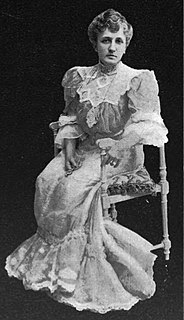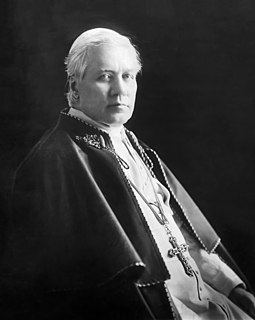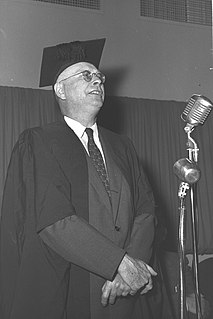A Quote by Ambrose Bierce
Christian, n.: one who believes that the New Testament is a divinely inspired book admirably suited to the spiritual needs of his neighbor.
Related Quotes
As Mike Bickle said to me, there is a spiritual battle going on in the world, and he believes that in America marriage between a man and a woman will become illegal. He believes there will be a war. He believes it'll begin in schools and the Christian kids will rise up and slay the non-Christian kids. This was an on-camera interview!
One thing must be emphatically stated. The New Testament books did not become authoritative for the Church because they were formally included in a canonical list; on the contrary, the Church included them in her canon because she already regarded them as divinely inspired, recognizing their innate worth and generally apostolic authority, direct or indirect.
I could not believe that anyone who has read this book would be so foolish as to proclaim that the Bible in every literal word was the divinely inspired, inerrant word of God. Have these people simply not read the text? Are they hopelessly misinformed? Is there a different Bible? Are they blinded by a combination of ego needs and naïveté?
It is impossible to approve in Catholic publications of a style inspired by unsound novelty which seems to deride the piety of the faithful and dwells on the introduction of a new order of Christian life, on new directions of the Church, on new aspirations of the modern soul, on a new vocation of the clergy, on a new Christian civilisation.
Would you say that any one sacred book is superior to all others in the world? ... I say the New Testament, after that, I should place the Koran, which in its moral teachings, is hardly more than a later edition of the New Testament. Then would follow according to my opinion the Old Testament, the Southern Buddhist Tripitaka, the Tao-te-king of Laotze, the Kings of Confucius, the Veda and the Avesta.
It's not as if the New Testament writers came along and said, "The culmination of Old Testament books is more books, New Testament books." In some ways they thought instead of the culmination of Old Testament books being Christ himself, the word incarnate as the opening verses of Hebrews 1 put it. In the past God spoke to the fathers by the prophets, but in these last days he has spoken to us by his son and the son is revelation.
Jesus has given me ample resources to meet the spiritual needs of others because He has given me Himself and He has give me His Word. But in order to meet the spiritual needs of the multitude, I have to spend hours alone with Him in the prayerful meditation of His Word so that my spiritual needs are met.
It is important for us to make a distinction between the spiritual fruit of joy and the cultural concept of happiness. A Christian can have joy in his heart while there is still spiritual depression in his head. The joy that we have sustains us through these dark nights and is not quenched by spiritual depression. The joy of the Christian is one that survives all downturns in life.
































